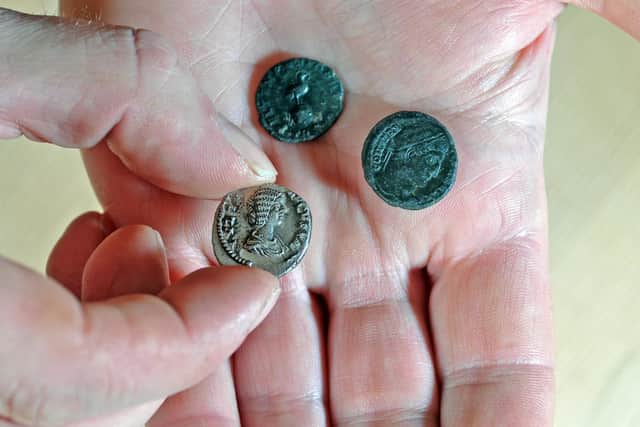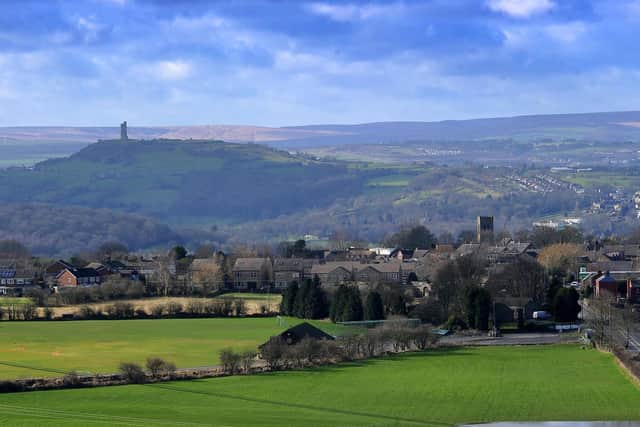Yorkshire's historic sites are being targeted by illegal nighthawking thieves


Nighthawking is the name given to illegal metal detecting at historic sites, where criminals retrieve any artefacts found and often sell them on for profit.
The Yorkshire Post reported in 2011 how these ancient relics are stolen by nighthawkers and sold across the world, when an alliance was formed between police forces and various organisations in a bid to crack down on the crimes.
Advertisement
Hide AdAdvertisement
Hide AdEnglish Heritage describes the crime as "robbing us of our past" and revealed yesterday (Friday) that, despite previous efforts to curtail the crime, December was the worst month in four years for the number of incidents reported across the country.


One such incident occurred in Maltby, near Rotherham, where damage was caused to land at medieval Grade-II listed Roche Abbey.
Ground workers found six holes dug in the grounds and the incident was reported to the police.
However, South Yorkshire Police stated at the time there was no CCTV available and the force confirmed yesterday that there have still been no arrests.
Advertisement
Hide AdAdvertisement
Hide AdThere are also reports of such incidents at Castle Hill in Huddersfield from 2018, while in April last year one man was allegedly assaulted after 'confronting men with metal detectors on his land' in Pocklington.


Humberside Police confirmed four men had been arrested and released pending further enquiries in connection with the Pocklington incident.
The Yorkshire Post understands that a historic site in North Yorkshire is also currently under investigation with regards to reports of nighthawking incidents, although English Heritage is unable to officially disclose the location.
Last year, there were 12 reported incidents of illegal metal detecting at English Heritage sites alone - four of which occurred in December.
Advertisement
Hide AdAdvertisement
Hide AdThe number for 2019 is more than double of that recorded in 2017.


Kate Mavor, Chief Executive for English Heritage, said: "Illegal metal detecting robs us of our past. Once items are spirited away they can never be replaced, and the evidence of those who went before us is lost forever.
"We are working closely with Historic England and local police services to combat this form of heritage crime.
"We are now asking the wider community to act as our 'eyes and ears' and to report any suspicious activity on or near English Heritage sites to the police."
Advertisement
Hide AdAdvertisement
Hide AdOther UK sites targeted by nighthawking include the Battle of Hastings site in East Sussex, Goodrich Castle in Herefordshire and Old Sarum in Wiltshire.


Meanwhile, a search of auction site eBay revealed more than 1,000 items for sale this week which were relics found through metal detecting.
Although there is no suggestion these items were obtained through criminal activity, eBay has previously said it works with the British Museum and the Portable Antiquities Scheme to remove any items of concern listed on the site.
A spokeswoman for eBay said: "Any listings that contravene our artefacts and cave formations policy will be removed and sellers educated. Sellers who continue to breach our policies will have their accounts restricted and in some cases suspended. "
Advertisement
Hide AdAdvertisement
Hide AdMark Harrison, head of crime strategy at Historic England, said: "Illegal metal detecting is not a victimless crime.
"We may never see or fully understand the objects taken or damaged because they have been removed from their original sites with no care or record as to their history or context."